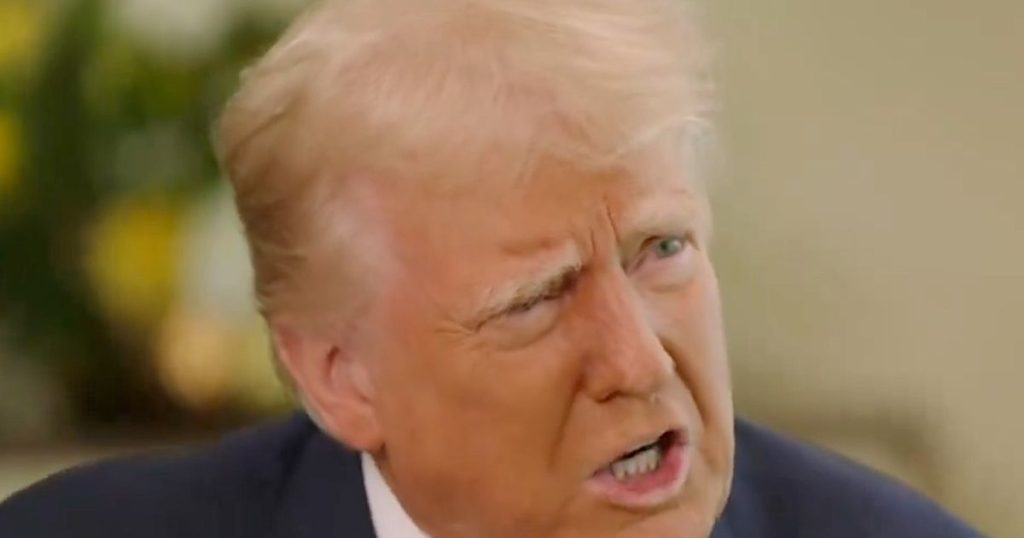In a recent interview with Phil McGraw, also known as TV’s “Dr. Phil,” Donald Trump made a controversial statement about Jesus and voter fraud in California. Trump claimed that if Jesus were the vote counter, he would win California, suggesting that he only lost the state due to voter fraud stemming from its extensive vote-by-mail program. Despite his insistence, there is no evidence to support his claim of widespread voter fraud, and no Republican presidential candidate has won California since 1988. Trump’s comments have drawn criticism from various sources, including the Kamala Harris campaign, which remarked on his delusional beliefs.
Trump’s unfounded claims about voter fraud in California and his assertion that he would have won the state if not for this alleged fraud have been met with skepticism and criticism. The former president’s comments reveal a level of delusion that many find concerning, suggesting that he continues to perpetuate falsehoods despite lack of evidence. Trump’s inability to accept defeat in California, where he lost by significant margins in both 2016 and 2020, highlights his refusal to acknowledge the reality of election results. Critics have pointed out the dangers of spreading misinformation about voter fraud, which undermines trust in the democratic process.
Critics have called out Trump for his outlandish claim about Jesus being the vote counter and ensuring his victory in California, highlighting the absurdity of his remarks. By invoking religious imagery in a political context, Trump has drawn further criticism for politicizing faith and using it to justify his baseless claims of voter fraud. His statement reflects a pattern of behavior in which he seeks to delegitimize election outcomes that do not align with his desires, casting doubt on the legitimacy of the democratic process. Trump’s unwillingness to accept defeat and his tendency to resort to conspiracy theories undermine the foundation of democracy.
The backlash against Trump’s comments underscores a growing concern about his influence on public discourse and the spread of misinformation. By making unfounded claims about voter fraud and suggesting that election results are illegitimate, Trump feeds into a narrative that erodes trust in the electoral system. The use of religious figures in his rhetoric to bolster his claims further complicates the issue, as it blurs the line between faith and politics. Critics argue that Trump’s behavior sets a dangerous precedent for future political discourse, as it normalizes baseless accusations and undermines the integrity of the democratic process.
In response to Trump’s remarks, various critics have pointed out the absurdity and danger of his claims, including the Kamala Harris campaign, which emphasized the need for honesty in public discourse. Trump’s insistence on unsubstantiated claims of voter fraud and his refusal to accept defeat reveal a concerning trend of disinformation and dishonesty in political rhetoric. By using religion as a tool to justify his false beliefs, Trump further muddies the waters of public discourse and undermines the credibility of his claims. The criticism of his comments highlights the importance of truth and accuracy in political discourse, especially when it comes to matters as crucial as election integrity.
Overall, Trump’s controversial statement about Jesus, voter fraud, and his supposed victory in California has sparked widespread condemnation from critics who see it as a dangerous push towards misinformation and dishonesty in political discourse. The former president’s refusal to accept election results, his insistence on baseless claims of fraud, and his use of religious imagery to support his arguments reveal a troubling pattern of behavior that undermines the foundations of democracy. By confronting Trump’s false claims and highlighting the dangers of spreading misinformation, critics aim to uphold the integrity of the democratic process and ensure that future political discourse is grounded in truth and honesty.








